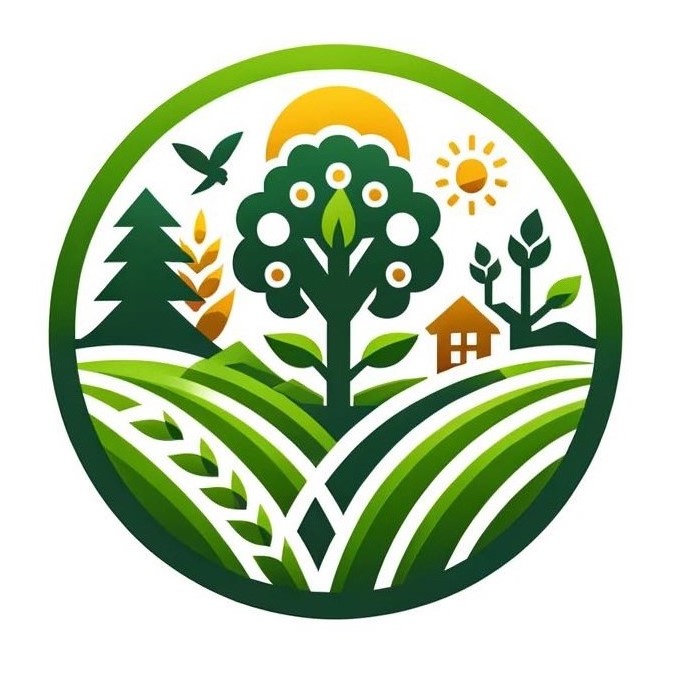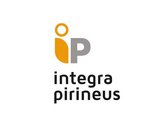AgroSylviMob : time to Kick-Off
Looking forward to kicking off our project, the stuations faced by Mayotte (FRANCE) these last months, led us to rethink the kick off session and…


Objectives: What do you want to achieve by implementing the project?
AgrosylviMob is a project in agroforestery where the objective is to create inclusive training paths for trainees who will work in the vegetable and fruit production sector.
The 6 partners from 4 countries are specialized in the fields of inclusion, education and agroforestry. This partnership is built around partners with a strong and long historical partnership who know each other well and integrates new partners specialized in their sector.
Implementation: What activities will you implement?
A job profil, level 3 training programs, tools for practical lessons and assessment situations in a professional situation will be created using descriptors. It will be set up around the modules selected from the units of learning. The outcomes from
transnational meetings will make it possible to set up training trials and take into account agro-environmental practices and societal expectations. Mobility will be organized for trainees at the partner's location in order to set up training trials.
Results: What results and other benefits do you expect from your project?
The tools created within the framework of AgrosylviMob will allow the implementation of registered courses and certifications of the different countries with whom we partnered. These training courses will be available for all the public, including the vulnerable. In order to ensure the dissemination and promotion of the work, dissemination actions will be carried out within the partnership. The training courses can be presented to OFs, academic authorities and funders.
How does the project address the selected priorities?
Our project addresses the lack of adult vocational training (level 3) and certification in the agroforestry sector in France, and also in Europe. We aim to address this issue by creating a career profile recognized by all partner countries, with skills that can be acquired through various learning modalities. We will focus on the following two major objectives:
- Green career focus: The career profile includes the theme "Teaching to produce differently, for transitions and agroecology" around living soils, biodiversity, resource quality (water, etc.), and climatology.
- Continuing education: Skills can be acquired progressively in accordance with the lifelong learning process.
- Inclusiveness: The career profile will be designed to be accessible to as many people as possible.
To meet this challenge, we envision a highly complementary partnership composed of agroforestry practitioners, didactics specialists, educational engineers, inclusion stakeholders, and agricultural organization specialists, in order to achieve high-quality results. We will produce an inclusive Level 3 career profile specializing in agroforestry based on performance descriptors, the implementation of training programs, specialized modules, positioning and validation tools, and a certification framework to promote pathways to success around the aforementioned themes.
We will test the feasibility and effectiveness of the intellectual products through mobility and pathways before transferring them to partner countries and more generally through our European networks.
What are our motivations ?
Today, all types of agriculture, regardless of their location in the world, are suffering from the effects of climate change. This situation is affecting our society, and we want to take a strong hand in this issue, which is close to our hearts. As a national education institution that has implemented a strategy to teach alternative production, we wish to share not only the knowledge we have acquired on the subject of agroforestry and sustainable agriculture in our own cultures, but also that acquired by our partners, who have their own particularities and cultures.
This project will allow us to create a new framework on sustainable agroforestry, adaptable to all partner countries and inclusive for all. The aim would be to promote sustainable, profitable, and reasoned agricultural practices: preserving soil health and our natural resources, increasing biodiversity, etc. The skills acquired by learners can be acquired through various learning methods (e.g., online learning, AFEST, in-person) while maintaining equality in assessment and those at the European level.
As this project is cross-disciplinary and international, we will rely on the mobility of our partners' staff and learners. When creating the framework, we will be able to develop a career profile based on performance descriptors, the implementation of training programs, specialized modules, and positioning and validation tools to promote success paths around the aforementioned themes.
The establishment of our partnership aims to be highly complementary and is essential in terms of dissemination and deployment of the method and the results produced through their territorial implementation, their national and European involvement in a context of sustainable and profitable agricultural development.
What are the concrete results aimed?
Our ultimate goal is the creation of a new inclusive green career profile in the field of vegetable and fruit production and agroforestry, with European recognition for level 3 adults. To achieve this result, we will implement key milestones.
1. Basic framework: Create the training framework so that it is adaptable to all agroforestry contexts in Europe.
2. The proposed professional framework will be open to all operator tasks (level 3). The project will enable the continued development of a European portfolio of agroforestry skills, capitalizing on the learning outcomes validated by learners. Its added value will be recognition by certification authorities in the agricultural sectors of partner countries. The project's unique feature will be the inclusion of agroforestry techniques and sustainable and rational practices.
3. The project plans to capitalize on strong skills and allows for the accumulation and diversification of skills to ensure participants' social and professional advancement. It will be a mobility tool across participating countries in the agricultural sector. As such, it is a project focused on two areas: issues related to qualification/certification and the mobility of professionals, particularly those with specific needs.
4. We have formed a partnership based on the complementary skills that will bring this ambitious project to fruition. Indeed, our partnership is comprised of diverse backgrounds: educational engineers, agroforestry practitioners outside France, and knowledge of agricultural training for adults with specific needs. This partnership is a win-win ecosystem.
Our project creates sustainable positions using an attractive method for vulnerable groups, who are generally resistant to traditional apprenticeships and who often find employment unstable or sometimes discriminatory. We offer innovative apprenticeship methods that will make it easier for certain groups to adhere to. We envision this process creating numerous jobs and providing a foundation for professionalization and sustainability for local projects.
How does this project complement other initiatives already carried out by the participating organizations?
As a reminder, the choice of partners is based on complementarity, as it includes institutions based in France, Slovenia, Austria, Spain, and Mayotte, with agroforestry practitioners, specialists in didactics, educational design, inclusion stakeholders, and specialists in agricultural organizations. Furthermore, they all have a history of Erasmus KA1 and/or KA2 projects on themes similar to ours, demonstrating a shared interest.
Our project complements the participating organizations in several ways.
1. The creation of a career profile on the subject of agroforestry
The EPL Lycée professionnel agricole de Coconi in Mayotte is a leader on the subject of agroforestry due to their knowledge and practice demonstrated in their "Jardin Mahorais" project. Since their climate and agriculture are different from ours, we will provide a neutral basis for agroforestry practice when creating the standard. This will allow us to create training and certification recognized throughout Europe and therefore usable by all our partners.
2. The theme "Teaching to produce differently, for transitions and agroecology"
All partners are aware of the effects of climate change on agriculture and its impact on our society and economy. Their actions and projects demonstrate their commitment to training learners on the theme of sustainable and profitable agriculture. Our project will provide inclusive training with innovative pedagogy.
3. Inclusive and Specific Needs
The Olivera cooperative and the Solivers cooperative focus on adult education with specific needs in the viticulture, oenology, and olive growing sectors. Furthermore, LFS Langenlois has access to the latest innovative teaching methods thanks to its connection with the University of Vienna. We will base the project on the same learning method but in a different agricultural sector.
Our partnership is thus strengthened thanks to our shared interests and is beneficial to all.
How does your proposal create synergies between the different sectors of education, training, youth, and sports? Does it have a significant potential impact on one or more of these sectors?
Our proposal will create synergies between the education and training sectors in the agroforestry sector.
The training we will create will be based on a new professional framework. The impact we aim to have is on the choice of training type (distance learning, AFEST, in-person), the possibility of mobility within Europe to broaden learners' horizons, and to educate learners on soft skills and hard skills. There will also be a strong focus during the creation of the training on ensuring it is inclusive for all. This last point will have a significant impact on job creation and secure permanent positions for learners.
How does the proposal bring added value at the European level through results that could not be achieved through activities carried out at the national level?
The training and certification we want to create not only does not exist in France, but the practice of agroforestry at the national level remains superficial compared to neighboring countries. Our approach will enable us to gather knowledge on agroforestry practice from our European partners in order to create a basis for the framework. Then, to implement the training, we will gather knowledge on pedagogy from our partners in Alsace, Spain, and Austria to make the training accessible to all.
Agroforestry : Land management where trees or shrubs are deliberatery integrated with crops and/or animals to produce socio-economic and/or environmental benefits.
Cooperation partnerships
The primary goal of Cooperation Partnerships is to allow organisations to increase the quality and relevance of their activities, to develop and reinforce their networks of partners, to increase their capacity to operate jointly at transnational level, boosting internationalisation of their activities and through exchanging or developing new practices and methods as well as sharing and confronting ideas. They aim to support the development, transfer and/or implementation of innovative practices as well as the implementation of joint initiatives promoting cooperation, peer learning and exchanges of experience at European level. Results should be re-usable, transferable, upscalable and, if possible, have a strong transdisciplinary dimension. Selected projects will be expected to share the results of their activities at local, regional, national level and transnational level.
Cooperation Partnerships are anchored to the priorities and policy frameworks of each Erasmus+ sector, both at European and national level, while aiming at producing incentives for cross-sectoral and horizontal cooperation in thematic areas.
Depending on the field of the project proposed or on the type of applicant, Cooperation Partnerships are managed either by the National Agencies or by the European Education and Culture Executive Agency (EACEA). For more information in this respect, please refer to the section “Where to apply” under the eligibility criteria.
Cooperation Partnerships aim at:
To be eligible for an Erasmus grant, project proposals for Cooperation Partnerships must comply with the following eligibility criteria:
Any participating organisation established in an EU Member State or third country associated to the Programme can be the applicant/coordinator. This organisation applies on behalf of all participating organisations involved in the project.
In order to be eligible, applicant organisations must have been legally established at least 2 years before the application deadline.
For Partnerships in the fields of education and training or youth submitted by European NGOs and managed by the European Education and Culture Executive Agency (EACEA) the applicant coordinator must be a European NGO1active in the field of education and training or youth.
The European body/secretariat of the European NGO applies on behalf of the European NGO.
Any public or private organisation, established in an EU Member State or third country associated to the Programme or in any third country not associated to the Programme in regions 1 to 3 (see section “Eligible Countries” in Part A of this Guide) can participate in a Cooperation Partnership2.
Exception: organisations from Belarus (Region 2) are not eligible to participate in this action.
Organisations established in EU Member States and third countries associated to the Programme can either participate as the coordinator of the project or as a partner organisation.
Organisations in third countries not associated to the Programme cannot participate as project coordinators.
Irrespective of the field impacted by the project, Cooperation Partnerships are open to any type of organisation active in any field of education, training, youth, sport or other socio-economic sectors as well as to organisations carrying out activities that are transversal to different fields (e.g. local, regional and national authorities, recognition and validation centres, chambers of commerce, trade organisations, guidance centres, cultural and sport organisations).
Depending on the priority and the objectives addressed by the project, Cooperation Partnerships should involve the most appropriate and diverse range of partners in order to benefit from their different experiences, profiles and specific expertise and to produce relevant and high quality project results.
In addition to the organisations formally participating in the project (the coordinator and partner organisations), Cooperation Partnerships may also involve other partners from the public or private sector that contribute to the implementation of specific project tasks/activities or support the promotion and sustainability of the project.
Within an Erasmus+ project, these partners will be called “associated partners”. For eligibility and contractual management aspects they are not considered to be project partners, and they do not receive any funding from the Programme as part of the project. However, in order to understand their role within the partnership and have a global picture about the proposal, their involvement in the project and in the different activities needs to be clearly described.
A Cooperation Partnership is a transnational project and must involve minimum three organisations from three different EU Member States or third countries associated to the Programme.
There is no maximum number of participating organisations in one partnership.
All participating organisations must be identified at the time of applying for a grant.
For applications submitted to National Agencies in the fields of school education, vocational education and training, adult education and youth, the same organisation (one OID) cannot be involved in more than 10 applications overall per deadline, either as applicant or partner3.
As a general rule, Cooperation Partnerships target the cooperation between organisations established in EU Member States or third countries associated to the Programme.
However, organisations from third countries not associated to the Programme can be involved as partners (not as applicants), if their participation brings an essential added value to the project and as long as the minimum participation from three organisations from three different EU Member States or third countries associated to the Programme is fulfilled.
To be considered for funding, Cooperation Partnerships must address:
and/or
For projects in the field of education, training and youth managed by the Erasmus+ National Agencies in indirect management, National Agencies may, among these priorities, give more consideration to those that are particularly relevant in their national context (called "European priorities in the national context").
National Agencies must duly inform potential applicants through their official websites.
For projects in the field of sport only one priority (horizontal or specific) can be addressed.
All the activities of a Cooperation Partnership must take place in the countries of the organisations participating in the project, either as full partners or as associated partners.
In addition, if duly justified in relation to the objectives or implementation of the project:
Between 12 and 36 months.
The duration has to be chosen at application stage, based on the objectives of the project and on the type of activities planned over time.
The duration of a Cooperation Partnership may be extended, upon justified request by the beneficiary and with the agreement of the National or Executive Agency, provided that the total duration does not exceed 36 months. In such a case, the total grant will not change.
The Coconi agricultural high school welcomes and trains future farmers and rural stakeholders in the region. A true showcase, the farm is entrusted with several missions: educational as a training and integration support, a field of experimentation and innovation, and a player and initiator of local development, all with the aim of contributing to the Mayotte agriculture of today and tomorrow.
Garten-bauschule Langenlois (Austria):
The LFS Langenlois is a horticultural high school funded by the federal government of Lower Austria. It includes a boarding school and a training nursery for the production of ornamental plants, vegetables, trees, and shrubs. It also offers programs in horticulture, landscape management, and floristry.
L’Olivera / Integra Pirineus (Spain):
An agricultural cooperative located in Catalonia, founded in 1974, whose main objectives are the social advancement of people with disabilities and the cultivation and development of local products.
Scuola Enologica Cerletti (Italy):
A public agricultural secondary school located in Italy, in the northeastern region of Veneto, in Conegliano. This structure was founded in 1876 and today includes a technical institute and a vocational institute.
The Biotechnical School Maribor (Slovenia):
The Biotechnical School of Maribor was founded in 1872. It is the oldest agricultural school in Slovenia and offers training programs in agriculture, nature conservation, veterinary technician, florist, and agricultural machinery mechanic.
Since 2007, a learning enterprise providing agricultural and environmental services. This organization, located in Molsheim, Alsace, manages a 15-hectare vineyard and promotes fruit crops, all certified organic.
EPLEFPA Les Sillons de Haute-Alsace (France):ASM Project Coordinator.
Looking forward to kicking off our project, the stuations faced by Mayotte (FRANCE) these last months, led us to rethink the kick off session and…








